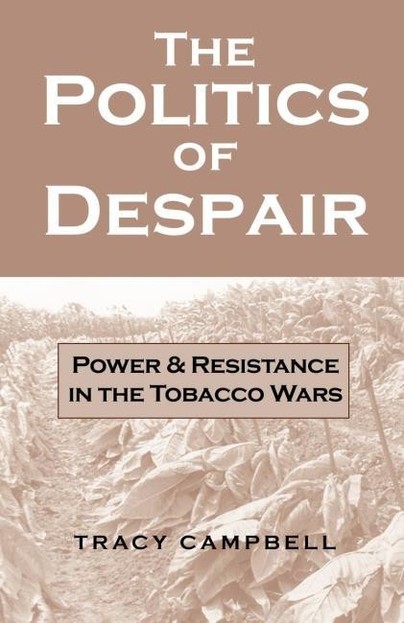The Politics of Despair (Paperback)
Power and Resistance in the Tobacco Wars
Imprint: University Press of Kentucky
Pages: 240
Illustrations: 8 b/w photographs, 12 tables, 2 maps
ISBN: 9780813191300
Published: 11th March 2005
Script Academic & Professional
Pages: 240
Illustrations: 8 b/w photographs, 12 tables, 2 maps
ISBN: 9780813191300
Published: 11th March 2005
Script Academic & Professional
This book will be reprinted and your order will be released in due course.
You'll be £23.00 closer to your next £10.00 credit when you purchase The Politics of Despair. What's this?
+£4.99 UK Delivery or free UK delivery if order is over £40
(click here for international delivery rates)
Order within the next 7 minutes to get your order processed the next working day!
Need a currency converter? Check XE.com for live rates
(click here for international delivery rates)
Order within the next 7 minutes to get your order processed the next working day!
Need a currency converter? Check XE.com for live rates
Shortly after 1900, tens of thousands of tobacco growers throughout Kentucky and Tennessee convulsed the region for nearly a decade in a revolt against the monopolistic practices of the American Tobacco Company. Though the revolt known as the Tobacco Wars remains one of the more remarkable insurgencies of rural America, it is also one of the more misunderstood. In this first major account of the uprising in over half a century, Tracy Campbell tells the story of these embattled farmers and casts a provocative new light on the issues that fueled the Tobacco Wars.
When tobacco prices fell below the cost of production in the early 1900s, farmers in western Kentucky and Tennessee, faced with desperate economic circumstances, formed cooperatives through which they could pool their crops and withhold tobacco from the market until a satisfactory price was offered. Campbell recounts the organizational underpinnings of the notorious "Black Patch War" and the forces that drove farmers to seek violent solutions to their economic ills. Campbell then expands the story to the burley region, where a simultaneous movement was under way. In 1908, over thirty thousand burley growers undertook the only successful large-scale agricultural strike in American history. Campbell brings this drama to life and describes the emotional day when the farmers achieved their unprecedented victory over the powerful Tobacco Trust.
The Tobacco Wars represented one of the last desperate gasps from the countryside before the onset of "agribusiness" drove millions of farmers and their families away for good. The Politics of Despair thus stands as a unique reminder of a tradition of protest that has, perhaps, been irretrievably lost. This book will interest not only rural and labor historians and students of the American South but anyone concerned with the profound issues surrounding the decline of rural America.
Other titles in University Press of Kentucky...















